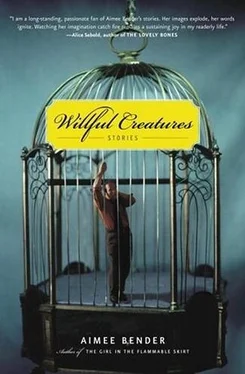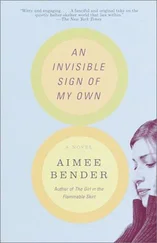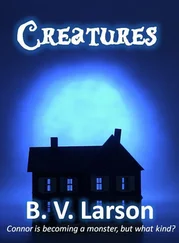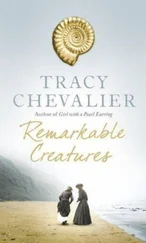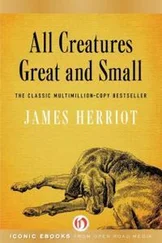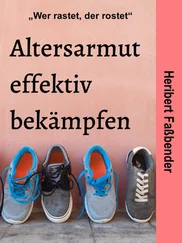Aimee Bender - Willful Creatures
Здесь есть возможность читать онлайн «Aimee Bender - Willful Creatures» весь текст электронной книги совершенно бесплатно (целиком полную версию без сокращений). В некоторых случаях можно слушать аудио, скачать через торрент в формате fb2 и присутствует краткое содержание. Год выпуска: 2006, Издательство: Anchor Books, Жанр: Современная проза, на английском языке. Описание произведения, (предисловие) а так же отзывы посетителей доступны на портале библиотеки ЛибКат.
- Название:Willful Creatures
- Автор:
- Издательство:Anchor Books
- Жанр:
- Год:2006
- ISBN:нет данных
- Рейтинг книги:4 / 5. Голосов: 1
-
Избранное:Добавить в избранное
- Отзывы:
-
Ваша оценка:
- 80
- 1
- 2
- 3
- 4
- 5
Willful Creatures: краткое содержание, описание и аннотация
Предлагаем к чтению аннотацию, описание, краткое содержание или предисловие (зависит от того, что написал сам автор книги «Willful Creatures»). Если вы не нашли необходимую информацию о книге — напишите в комментариях, мы постараемся отыскать её.
Willful Creatures — читать онлайн бесплатно полную книгу (весь текст) целиком
Ниже представлен текст книги, разбитый по страницам. Система сохранения места последней прочитанной страницы, позволяет с удобством читать онлайн бесплатно книгу «Willful Creatures», без необходимости каждый раз заново искать на чём Вы остановились. Поставьте закладку, и сможете в любой момент перейти на страницу, на которой закончили чтение.
Интервал:
Закладка:
God was apparently busy, he took longer this time, but showed up after a big dinner party where the chef served leg of lamb with rosemary on a bed of wild rice with lemongrass chutney. It was a huge hit, and everyone left, drunk, gorgeous with flush, blessed. The chef’s wife went to the bathroom and guess who sauntered through the screen door, swinging a noose.
No! moaned the chef, washing a dish. No!
This is it, said God. Stop making beautiful food. What is with you?
The chef hung his head. Then hung up his spoons in the cupboard with the typewriter, paints, playbooks and wigs. With the pens, turpentine, and volumes of Shakespeare. The shelf was getting crowded so he had to shove some towels aside to make room. He spent the week eating food raw from the refrigerator, and somehow found the will to dial up a piano teacher. But right when he glimpsed the way a chord works, how it fits inside itself, the most intricate and simple puzzle, when he heard how a fourth made him weep and a fifth made him soar, the cheerleading of C major, the birch trees of D minor, God returned with a baseball bat tucked into his belt.
Don’t even think about it, barked God.
Dance? Rifle.
Architecture? Grenade.
The man took a year off of life. He learned accounting. He was certain this would be no problem, but after a few weeks the way the numbers made truths about people’s lives was interesting to him; he tried law but kept beginning a duet with the jury; chemistry was one wonder after another; even the stock market reminded him of a wriggling animal, and so of course, the usual: pins near the eyes, the closing of the job doors, the removal of the name plaque, the repeated signing of the quitting papers.
So the man sat in a chair. God had ordered him to stop talking, so he went to a park and just looked at people. A young woman was writing in a blank book under a tree; she was writing and writing, and he caught her eye and sent her waves of company and she kept his gaze and wrote more, looked up again, wrote more, circled his bench and sat down and when she asked him questions he said nothing but just looked at her more, and she stood and went away, got a drink at the water fountain, circled back. After an hour of this, she nodded to him, said Thank You, and left. The pathway of her feet looped to the bench and back and away and back, in swirls and lines.
Shut your eyes! yelled God.
The man’s wife was unhappy. She was doing all the cooking now and her husband didn’t move or speak anymore. She missed their discussions, his paintings, his stories, his pliés. She missed talking to him about her job with the troubled people, and how at certain moments there was an understanding held between her and the person, sitting there, crying or not crying, mad or not mad, happy or unhappy, bland or lively, and it was like, at that moment, she said, they were stepping all over a canvas together. It’s like, she said, the room is full of invisible beetles. Or faucets. Or pillows. Or concrete. She told him all about it and his eyes were closed but she could feel, from his skin, that he was listening. She went to him and undressed him slowly and they made love there on the sofa, and he hardly moved but just pressed his warmth to her, his body into hers, and she held him close and the man gave her all he could without speaking, without barely shifting, lips and hips, and she started to cry.
Afterward she pressed her head to his chest and told him all the things she had thought about, the particular flower he made her feel, the blade, the chocolate torte.
They slept on the sofa together.
God put the man in a box with no doors or windows. He tied his hands behind his back and knotted a blindfold over his eyes. He stuck duct tape over his lips. God said: Not a peep out of you. Don’t you interact with anybody. The man sat with his head full of dreams. He thought of flying fish and the smell of his wife’s skin: white powder and clear sweat. He thought of basil breaking open and the drawing of a tomato with red and black paint and the word tomato, consonant vowel, consonant vowel, consonant vowel, and the perfect taste of tomato with basil, and the rounded curve of a man’s back, buttons of spine visible. He wondered where the girl with the half-blank book was right then. He thought of his wife making bridges of air over air. He listened to the sound of wind outside the box, loud and steady as his breath.
Dearth
The next thing in the morning was the cast-iron pot full of potatoes. She had not ordered them and did not remember buying potatoes at the grocery store. She was not one to bake a potato. Someone must have come in and delivered them by accident. Once she’d woken to meadows full of sunflower bouquets all over her house in glass vases and they turned out to be for the woman next door. Perhaps the woman next door had a new suitor now, one who found something romantic in root vegetables.
Our woman checked through her small house but it was empty as ever. She asked her neighbor, the one whose windows were still crowded with flowers, but the neighbor wiped her hands on a red-checkered cloth and said no, they were not for her, and she had not ordered any potatoes from the store either, as she grew her own.
Back at the house, the potatoes smelled normal and looked normal but our woman did not want them around so she threw them in the trash and went about the rest of her day. She swept and squared and pulled weeds from her garden. She walked to the grocery store and bought milk. She was a quiet person, and spoke very few words throughout the afternoon: Thank You, Goodbye, Excuse Me.
The next morning, when she woke up, the potatoes were back. Nestled, a pile of seven, in the cast-iron pot on the stove. She checked her trash and it looked as it had before, with a folded milk carton and some envelopes. Just no potatoes. She picked up all seven again, and took them across the road and pushed them one at a time into the trash Dumpster, listening as they thumped at the bottom of the bin.
During the afternoon she walked past rows of abandoned cabins to her lover’s house. He was in his bedroom, asleep. She crawled into the bed with him and pushed her body against his until he woke up, groggy, and made love to her. She stared at the wall as the craving built bricks inside her stomach, and then she burst onto him like a brief rain in drought season. Afterward, she walked home, and he got ready for his night job of loading supplies into trucks and out of trucks. She stopped by the cemetery on the way home to visit her mother, her father, her brother. Hello mother, hello father, hello brother. Goodbye now.
The next morning, the potatoes had returned. This time she recognized them by the placement of knots and eyes, and she could see they were not seven new potatoes, but the same seven she had, just the day before, thumped into the Dumpster. The same seven she had, just the day before that, thrown into the small garbage of her home. They looked a little smug. She tied them tight in a plastic bag and dropped them next door on the sunflower woman’s front stoop. Then she repotted her plants. For the rest of the day, she forgot all about them, but the next morning, the first thing she checked was that cast-iron pot. And what do you know. And on this day they seemed to be growing slightly, curving inward like big gray beans.
They were bothering her now. Even though she was minutely pleased that they had picked her over the sunflower neighbor, still.
“All right.” She spoke into the pot. “Fine.”
Oven.
On.
Since she did not enjoy the taste of baked potatoes, when they were done she took them into the road and placed all seven crispy purses in a line down the middle. The summer sun was white and hot. At around three, when the few cars and trucks and bicycles came rolling through town, she swayed and hummed at the soft sound of impact, and that night, she slept so hard that she lost her own balance and didn’t wake up at sunrise like usual but several hours into the morning. There was a note slipped under the door from her lover who had come to visit after work. He forgot to write “Love” before his name. He had written “Sincerely” instead.
Читать дальшеИнтервал:
Закладка:
Похожие книги на «Willful Creatures»
Представляем Вашему вниманию похожие книги на «Willful Creatures» списком для выбора. Мы отобрали схожую по названию и смыслу литературу в надежде предоставить читателям больше вариантов отыскать новые, интересные, ещё непрочитанные произведения.
Обсуждение, отзывы о книге «Willful Creatures» и просто собственные мнения читателей. Оставьте ваши комментарии, напишите, что Вы думаете о произведении, его смысле или главных героях. Укажите что конкретно понравилось, а что нет, и почему Вы так считаете.
